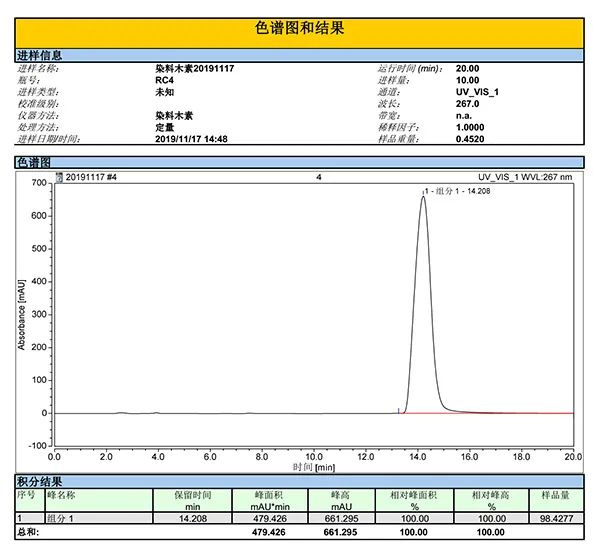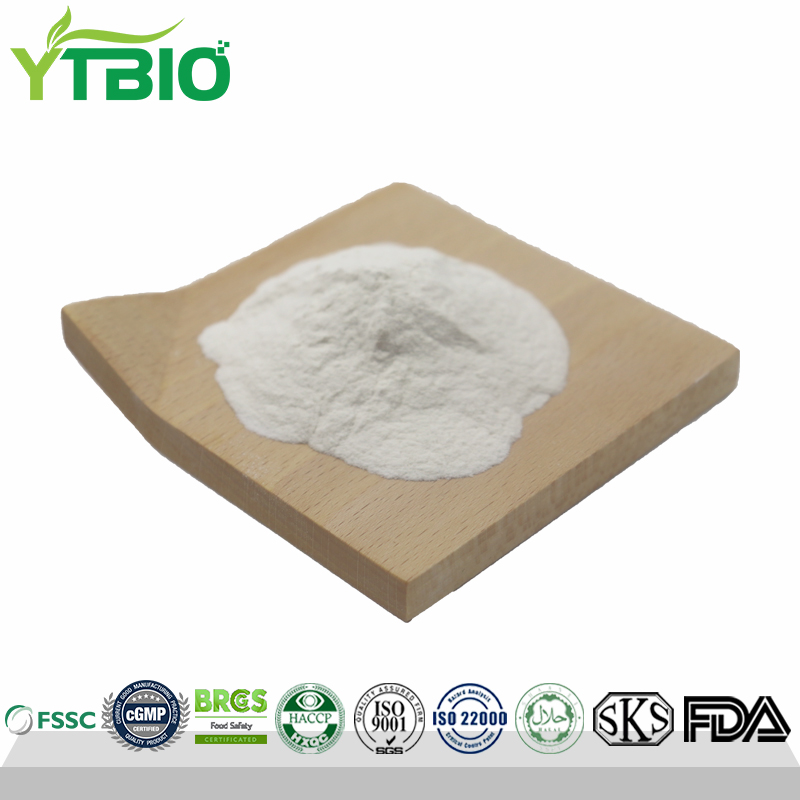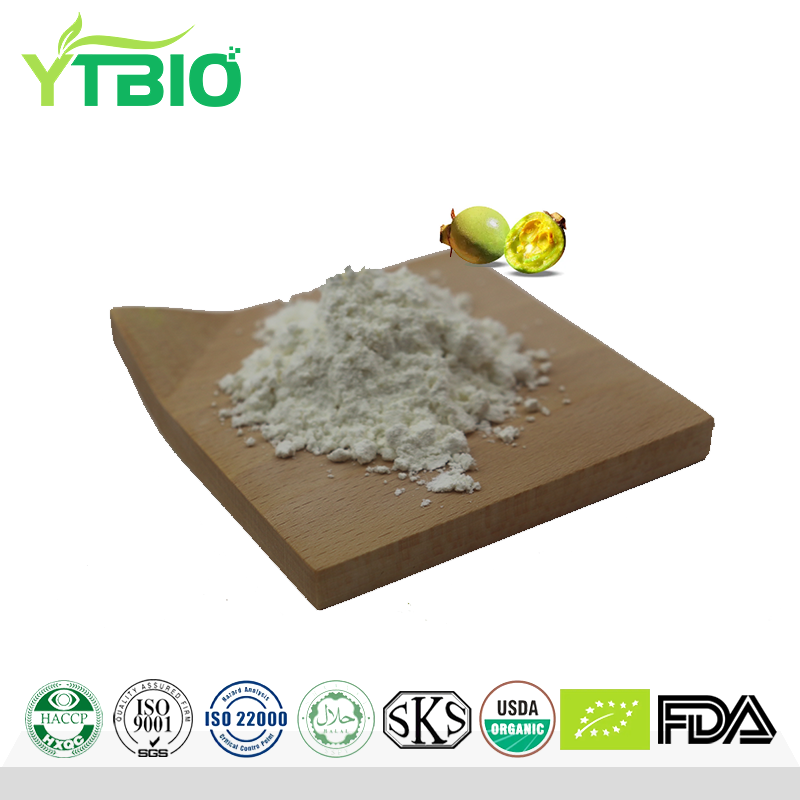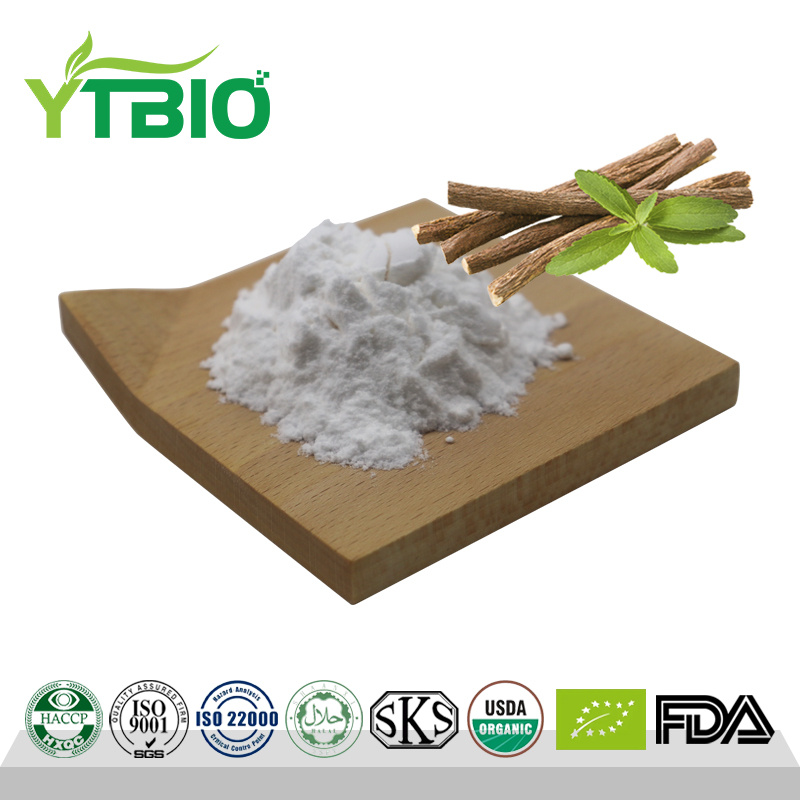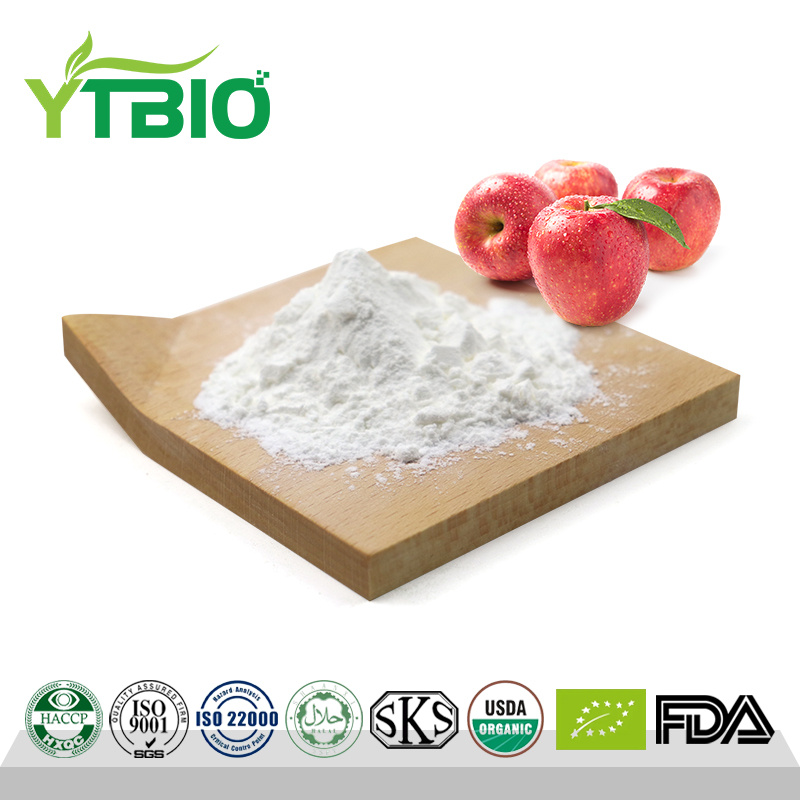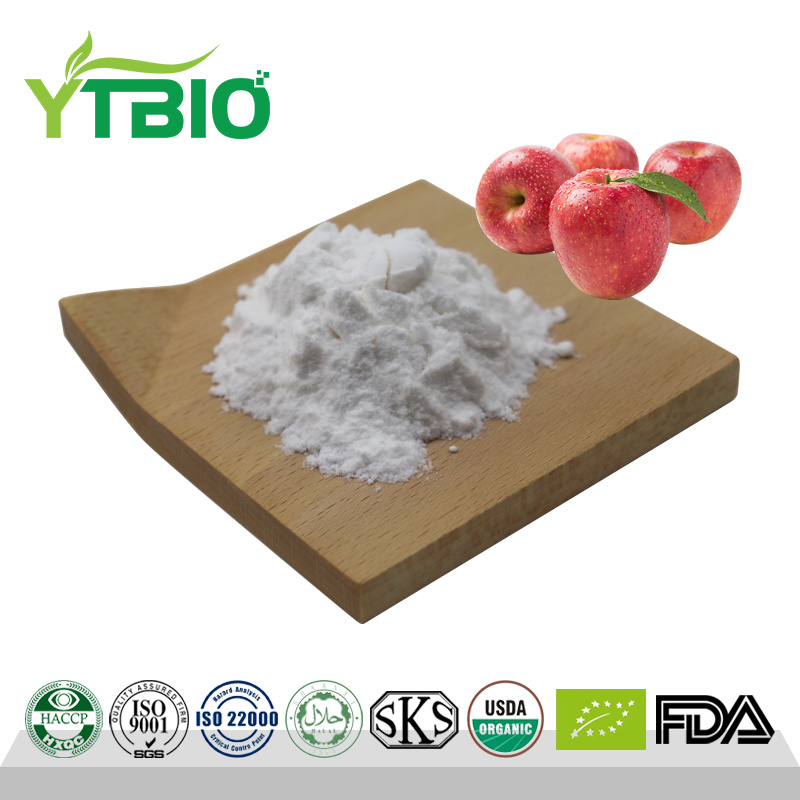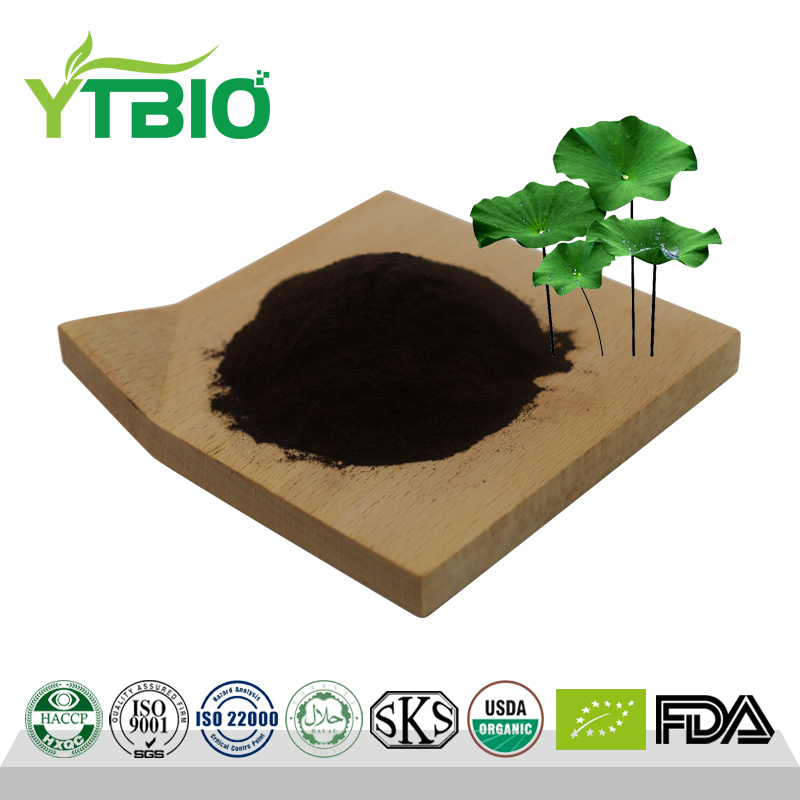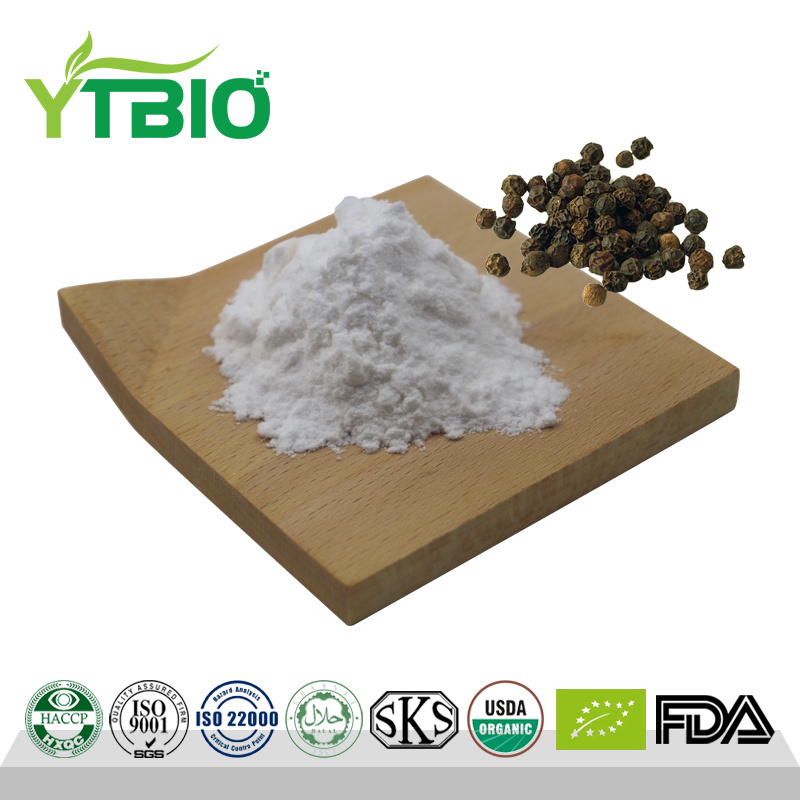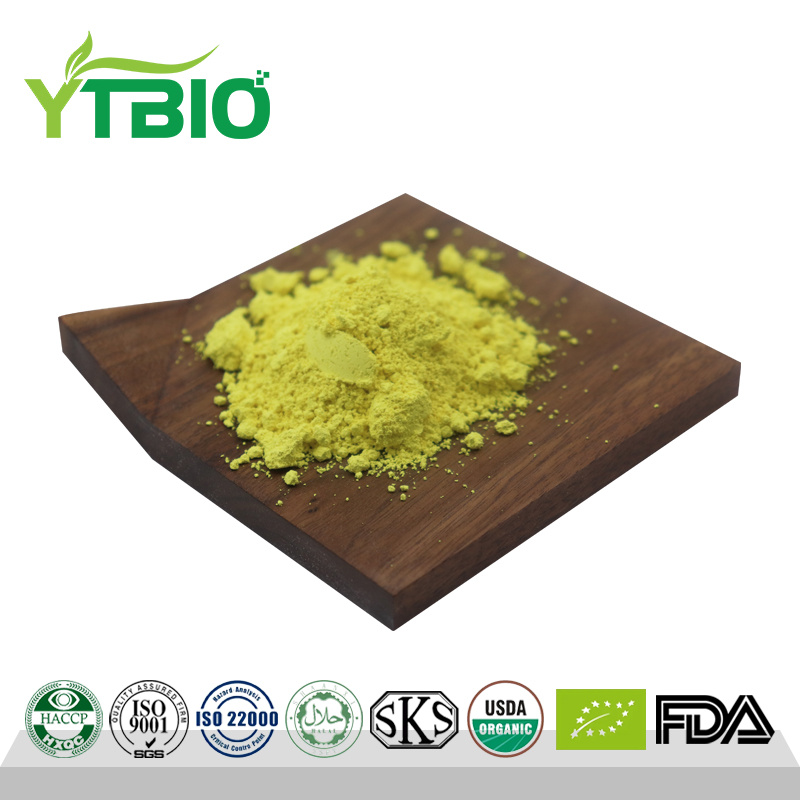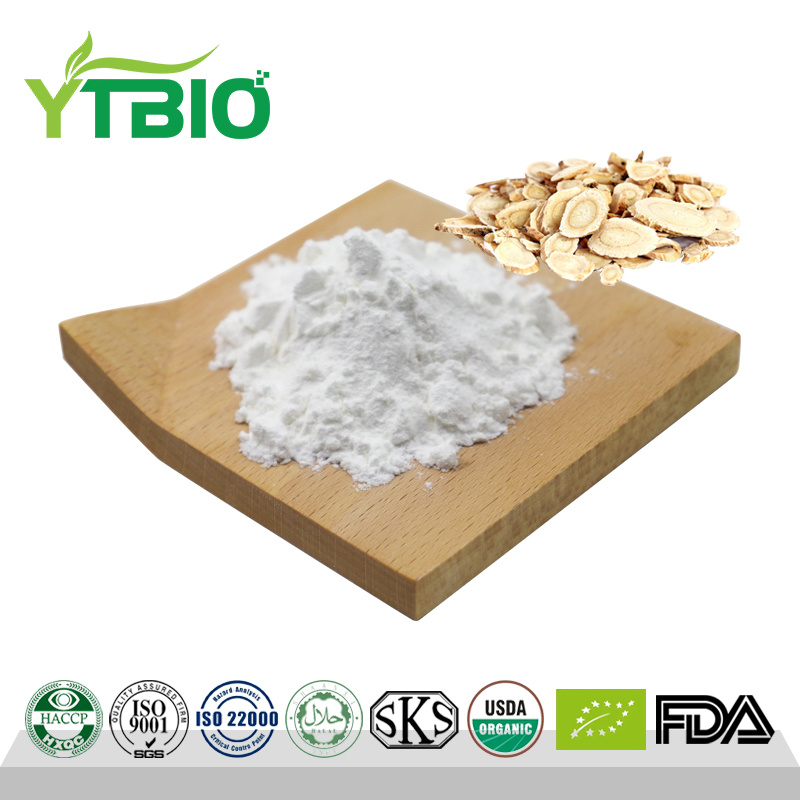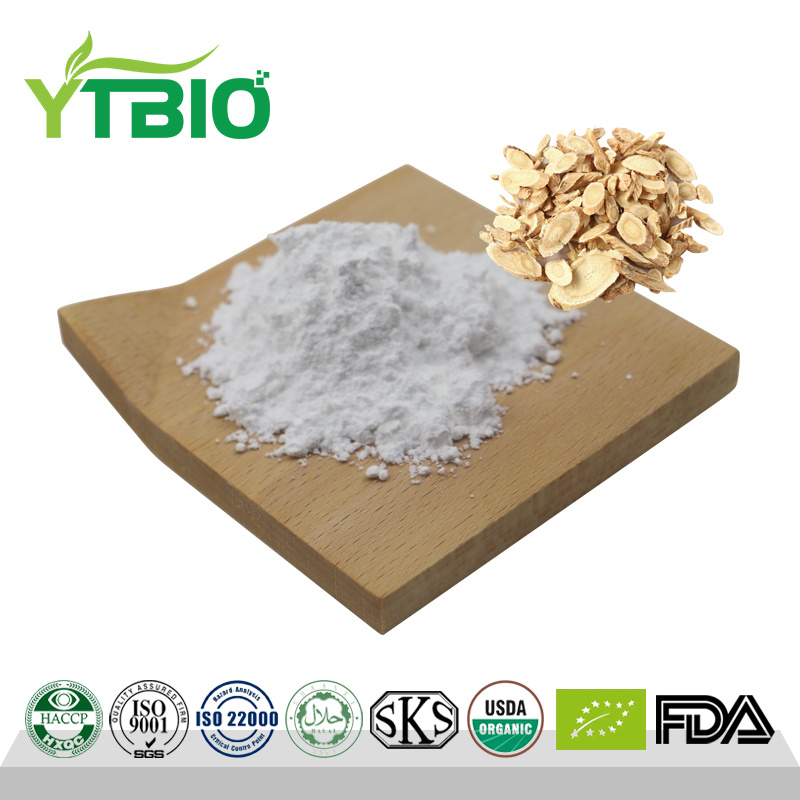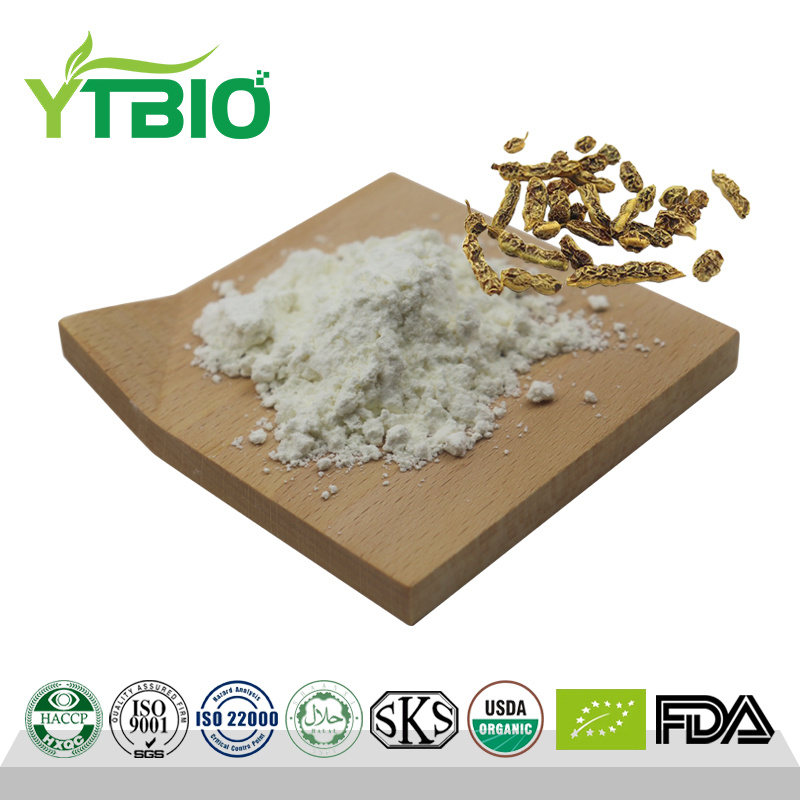Sophora Japonica Extract 98% Genistein Powder
About Genistein
Dyeing wood flavonoids belong to the isoflavonoid class of compounds and are a group of naturally occurring products with strong physiological activity. They have multiple functions, including antioxidant, anti-hemolytic, antimicrobial, and the prevention of cardiovascular diseases. Their molecular structure is similar to that of α-estradiol, which is why they are referred to as "phytoestrogens."
Main Effects
● Anti-Osteoporosis: Dyeing wood flavonoids are beneficial for the bone health of postmenopausal women and are a hot research topic in the study of plant medicines for osteoporosis. The National Osteoporosis Foundation (NOF) in the United States points out that it is the only plant active ingredient considered safe by the FDA, although more clinical data is needed.
● Gut Health: Studies have shown that dyeing wood flavonoids can help alleviate intestinal inflammation, improve gut microbiota, and enhance epithelial barrier function.
● Other Benefits: They may also have potential benefits for age-related diseases such as neurodegenerative diseases, cardiovascular diseases, and skin aging.
● Antibacterial Effect
The antibacterial mechanism of genistein (GEN) primarily involves disrupting the integrity of the cell wall and cell membrane, inhibiting the tricarboxylic acid (TCA) cycle pathway, and blocking protein synthesis. Due to its combined antibacterial and antioxidant properties, genistein serves a dual function as a food additive, with promising application prospects.
● Estrogen-like Activity
Genistein (GEN) and its aglycone are the most abundant components in soybean isoflavones. The aglycone form exhibits higher activity than the glycoside form, with GEN being particularly potent, possessing a bidirectional regulation effect as a phytoestrogen. MCF-7 cells, an ER-positive human breast cancer cell line, specifically respond to estrogen or estrogen-like substances, proliferating in response to their regulation. This estrogen-like proliferative response is highly sensitive, easy to perform, and can differentiate between agonists and antagonists, making it widely used for rapid screening and evaluating environmental estrogens and phytoestrogens.
Studies have shown that GEN can stimulate the expression of certain estrogen-regulated genes, indicating that GEN binds to estrogen receptors, producing both anti-estrogenic effects and estrogenic effects by activating estrogen response elements.
Genistein (GEN) exerts its antibacterial effect by disrupting cell structure and inhibiting metabolic pathways, while also possessing bidirectional estrogen-like regulatory functions. It can bind to estrogen receptors and regulate gene expression. These properties give it broad application potential in the food additive and pharmaceutical fields.
Detection pattern
